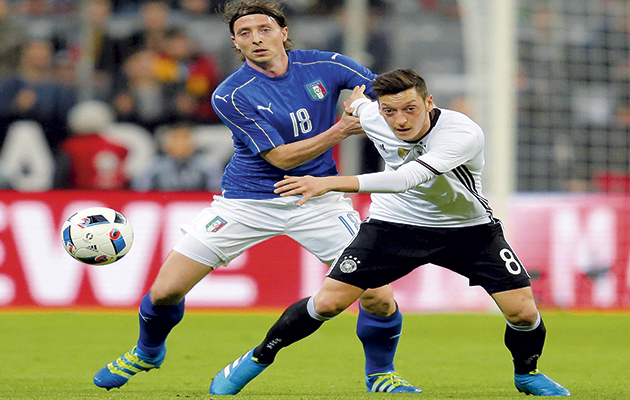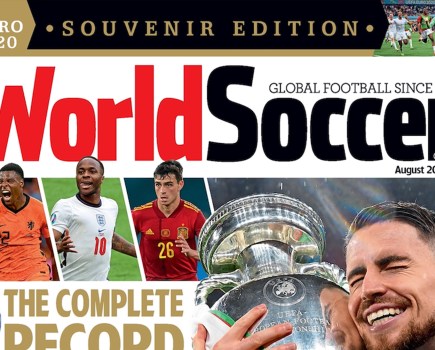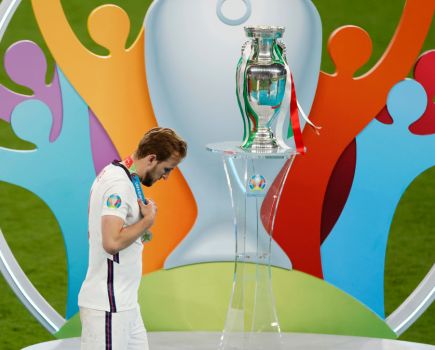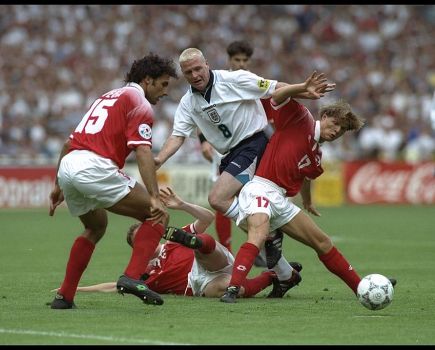Only two countries have claimed back-to-back World Cup and European Championship titles – France (1998, 2000) and Spain (2010, 2012) – and it does not require a vivid imagination to see Germany completing the same glorious double.
Hot favourites to win a fourth continental crown this summer, the Nationalmannschaft appear to have all bases covered: the pedigree (seven major titles in all), the talent of a golden generation of players, a platinum coach in Joachim Low, tournament know-how, first-rate federation back-up, the culture of never leaving their best fight in the gym, and always able to rise to the occasion.
For Germany’s footballing finest, self-satisfaction and standing still are cardinal sins. So as soon as they had struck gold in Rio, the focus immediately turned to the next set of goals: triumph in France and a successful World Cup defence. In short, the creation of a dynasty.
That three-quarters of respondents to an opinion poll commissioned by Kicker magazine were confident that Germany would make at least the Euro 2016 semi-finals, it’s not simply a case of blind patriotic faith. Hard-headed logic tells them they have every right to believe.
In goalkeeper Manuel Neuer, centre-back Jerome Boateng, orchestra conductor Toni Kroos and goal-hungry wanderer Thomas Muller, the Germans have a world-class backbone, are awash with brilliance in the attacking third, but by a cruel twist of fate they are again without the dazzling talents of Marco Reus and Ilkay Gundogan, both of whom miss out through injury, just as they did two uyears ao in Brazil.
Another undoubted positive for the world champions is the excellence this season of Bayern Munich and Borussia Dortmund, the two most important providers of talent to the national squad.
Historically, some of (West) Germany’s best XIs have been built on two-club blocks – Borussia Monchengladbach and Bayern Munich stars joining forces in the 1970s, and a mix of Borussia Dortmund and Bayern providing the platform for Germany’s last European Championship success in 1996 – and a similar marriage of convenience looks distinctly possible.
Dortmund boss Thomas Tuchel and Bayern counterpart Pep Guardiola have much common ground in their tactical approach – possession, pressing and dynamism – and the resultant national team synergy could be dynamic.
Not that there can be any room for complacency. The national side made decidedly heavy weather of topping their qualifying group, losing in Poland and the Republic of Ireland, performing in fits and starts, and frequently wobbling defensively.
In the full-back positions, Germany are particularly short of top-calibre options since ex-skipper Philipp Lahm decided to call it a day after the World Cup.
Meanwhile, midfielder Sami Khedira recently caused quite a stir with his assertion that the team would have “no chance” in France if they did not considerably up their game. Low, with typical candour, replied that he broadly agreed.
The Bundestrainer also has a pile of personnel problems to deal with. Back-line pillar Boateng could be undercooked after three months out with a nasty groin injury; World Cup Final match-winner Mario Gotze is seriously short of game time following an autumnal adductor muscle breakdown; Wolfsburg attacker Max Kruse has been blackballed for bad behaviour; while captain and midfield general Bastian Schweinsteiger faces a race against time to be fit; the worst news, though, came with the announcement that Marco Reus had failed a fitness test and would miss his second successive major tournament.
There’s nothing, though, that Low can’t handle. In his five tournaments in charge, his team has not once failed to launch.
As Germans know only too well, trophies are neither won in the spring nor on the friendly circuit. Come June and July, it’ll be alright on the night.
Tactics

While Joachim Low’s core beliefs – attractive attacking football, good possession, technical finesse, high-tempo surges, fluidity and flexibility – are etched in stone, that does not mean he never changes course.
During his side’s march to eminence at the last World Cup, he was more pragmatic than normal, rolling out a 4-3-3 system that included four central defenders and gave much greater emphasis to set-pieces and keeping it tight.
But since Germany became world champions, he has reverted to type, usually employing his favoured 4-2-3-1 in the qualifiers and encouraging more freedom of expression. His is a modern take on “Total Football”, with a high defensive line; Manuel Neuer as the sweeper-keeper; advanced full-backs; luxuriant combination play, and the capacity of their advanced guard to drift, interchange and create overloads.
Following the international retirement in 2014 of prolific striker Miroslav Klose, the Bundestrainer often has gone down the “false nine” route, deploying either Mario Gotze, Thomas Muller or Andre Schurrle as the nominal line-leader.
Plan B would the feature a conventional centre-forward. Although Low regularly speaks about his attachment to a dominant, pro-active style of play, his side is, on the whole, far more at home as a counter-attacking force.
This season, Low has experimented with both a three-man defence and a 4-4-2 set-up although, it must be said, neither was particularly successful.
Coach

Joachim Low
Age 56 (03.02.60)
Composed, cerebral and switched on tactically, “Jogi” was once relentlessly attacked by many in the German media for not instilling sufficient steel in his side and regularly falling at the final hurdle of major finals. He had the last laugh, though, when winning the World Cup in July 2014.
As a club coach in Germany, Austria and Turkey, he was competent rather than eye-catching, but he has been inspirational with the national team, including two seasons as Jurgen Klinsmann’s assistant.
By Nick Bidwell
Squad
Goalkeepers: Manuel Neuer (Bayern Munich), Bernd Leno (Bayer Leverkusen), Marc-Andre ter Stegen (Barcelona).
Defenders: Jerome Boateng (Bayern Munich), Emre Can (Liverpool), Jonas Hector (Cologne), Benedikt Howedes (Schalke 04), Mats Hummels (Borussia Dortmund), Shkodran Mustafi (Valencia), Antonio Ruediger (Roma).
Midfielders: Julian Draxler (VfL Wolfsburg), Sami Khedira (Juventus), Joshua Kimmich (Bayern Munich), Toni Kroos (Real Madrid), Thomas Muller (Bayern Munich), Mesut Ozil (Arsenal), Lukas Podolski (Galatasaray), Andre Schurrle (VfL Wolfsburg), Bastian Schweinsteiger (Manchester United), Julian Weigl (Borussia Dortmund).
Forwards: Mario Gomez (Besiktas), Mario Gotze (Bayern Munich), Leroy Sane (Schalke 04).
Schedule
Jun 12 v Ukraine (Lille, France)
Jun 16 v Poland (Saint-Denis, France)
Jun 21 v Northern Ireland (Paris, France)







